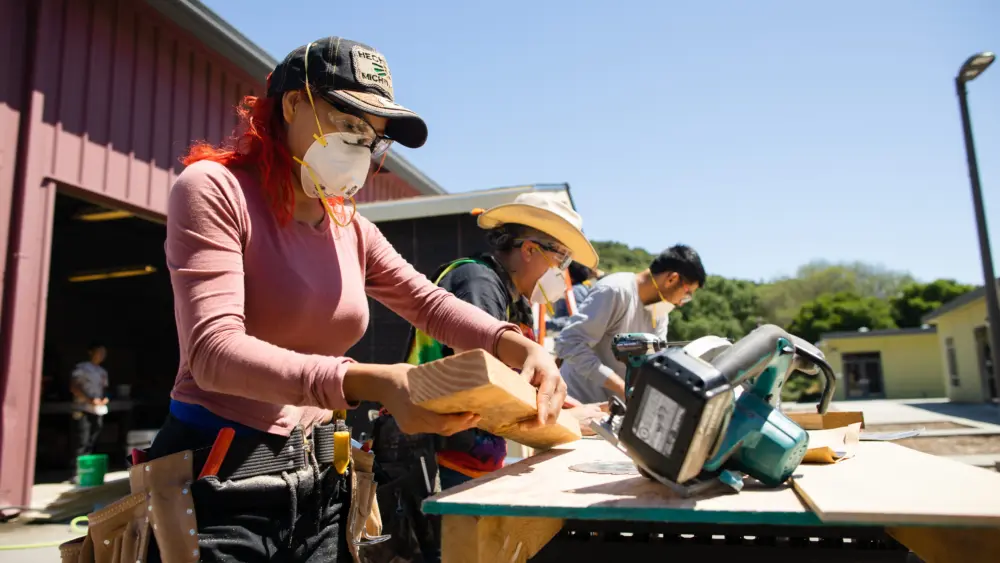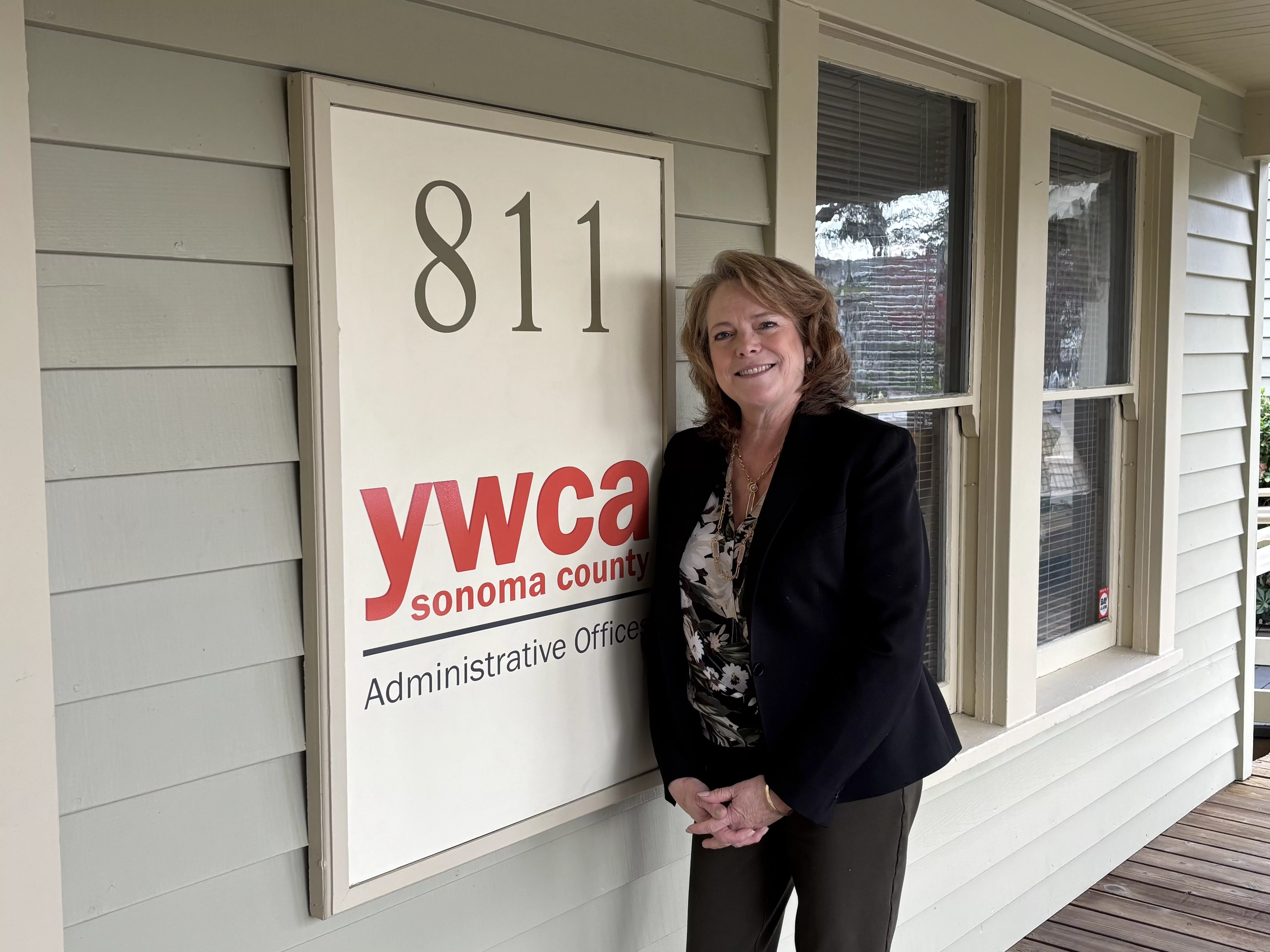
Madeleine Keegan O'Connell is CEO of YWCA Sonoma County. [Photos by Rosie Padilla, unless otherwise indicated]
Imagine having your life threatened by someone you should be able to trust, forcing you to flee with nowhere to go—perhaps with children in tow who are equally at risk. It’s an ordeal nobody should have to endure, and yet for the leadership and staff at the YWCA Sonoma County, it’s an all-too-common scenario. Rescuing victims of domestic violence and helping them find a haven has been one of its primary purposes for almost 50 years.
The YWCA—Young Women’s Christian Association—Sonoma County was founded in fall 1975, and addressing domestic violence quickly became a priority, after several community members learned about women, some with children, who were sleeping in their cars. Homelessness wasn’t the issue it is today, and living in vehicles was unusual, so they decided to find out why it was happening. They discovered that the women had left their homes because physical violence or threats of aggressive behavior at the hands of their partners made staying unsafe, and they had no other option. Wanting to help, the concerned citizens held a garage sale in 1976 and raised enough money to establish a domestic violence hotline that victims could call for help 24 hours a day, seven days a week. A supporter of the YWCA provided space for an office. The number, 707-546-1234, is the only crisis hotline for victims of domestic violence in Sonoma County and has helped countless people over the years. In 1980, the YWCA further increased its services by purchasing a former board-and-care facility for use as a safe house shelter. Counseling and childcare services followed, creating the YWCA’s three pillars of service: assistance for victims of domestic violence, counseling support and childcare.
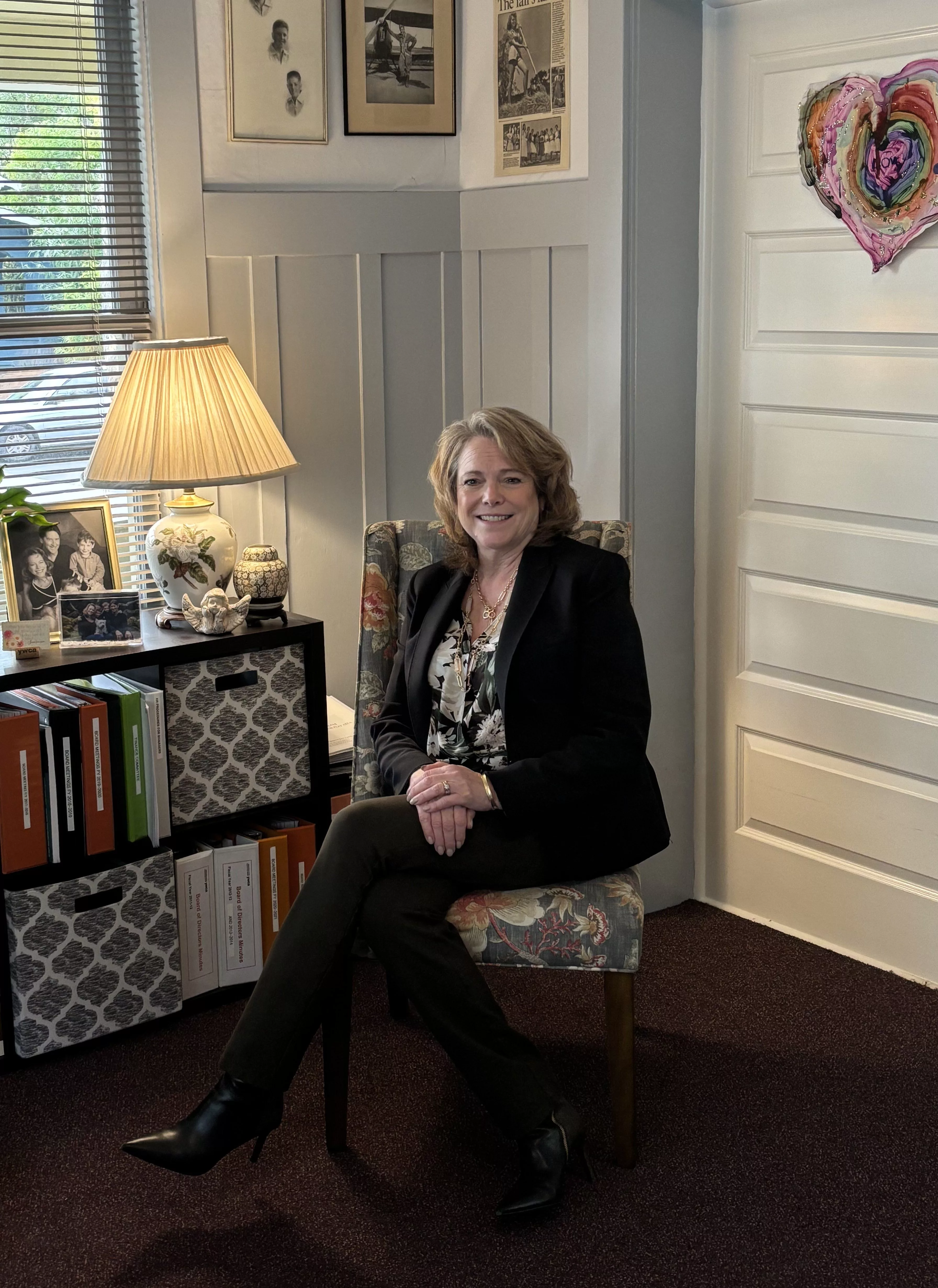
The National Intimate Partner and Sexual Violence Survey, a study by the Centers for Disease Control and Prevention, reports that two in five women and one in four men will experience sexual violence, physical violence or stalking by a partner at some point in their lives. “Domestic violence is a broad term; we also talk about intimate partner violence,” says Madeleine Keegan O’Connell, CEO of YWCA Sonoma County, who explains that an abuser can control the life of a victim in many ways. Although the word violence suggests physical harm, abuse takes many forms and can also be psychological or financial. If a victim must turn over a paycheck, for instance, the resulting lack of access to money makes him or her powerless. She adds that domestic violence knows no boundaries, and becoming a victim is not based on economic standing, education, religion or gender. It can happen to anyone, and “Some come from the best zip codes in Sonoma County,” she says. “They’re just in a desperate situation and have nowhere to go.”
Escape routes
Domestic violence is a complicated issue with a variety of factors coming into play, and it can take several calls to the hotline before a victim is ready to leave an abusive situation. O’Connell recalls a woman whose husband brutally attacked her at a family gathering at a public park, causing significant injuries. Law enforcement arrested the man and called YWCA advocates to meet with the victim at the hospital where she was receiving treatment. The goal was to move her and her children to the shelter, but her focus was on finding a way to bail him out, even though she had no money or access to a bank account, illustrating how dependent she was on her abuser. “Our YWCA advocate offered her our services and options for safety planning without judgement and urged her to use our 24/7 crisis hotline to stay in touch with us,” says O’Connell. “Our goal is to share that we’re here and that the crisis hotline is answered 24 hours a day, seven days a week.” It’s typical for a person to call six or seven times before acting, because it takes time for them to build confidence once they discover that someone is listening and believes them. “There’s a rapport that’s built,” says O’Connell, and she explains that the YWCA keeps a database, even though calls are often filed as anonymous, so when a person calls again, an operator can pick up where the previous conversation ended.
Several days later, when the woman felt ready to make an escape plan, she called the hotline for help. Her abuser rarely allowed her to take all their children when she left the house, in a strategy designed to make sure that she always returned. With the YWCA’s help, however, she successfully planned her escape to the safe house by claiming she was taking them to visit a family member. In addition to providing shelter, the YWCA referred the woman to legal services so she could obtain a restraining order against her abuser and provided counseling to help her and her children overcome the trauma they had experienced as a result of the attack in the park.
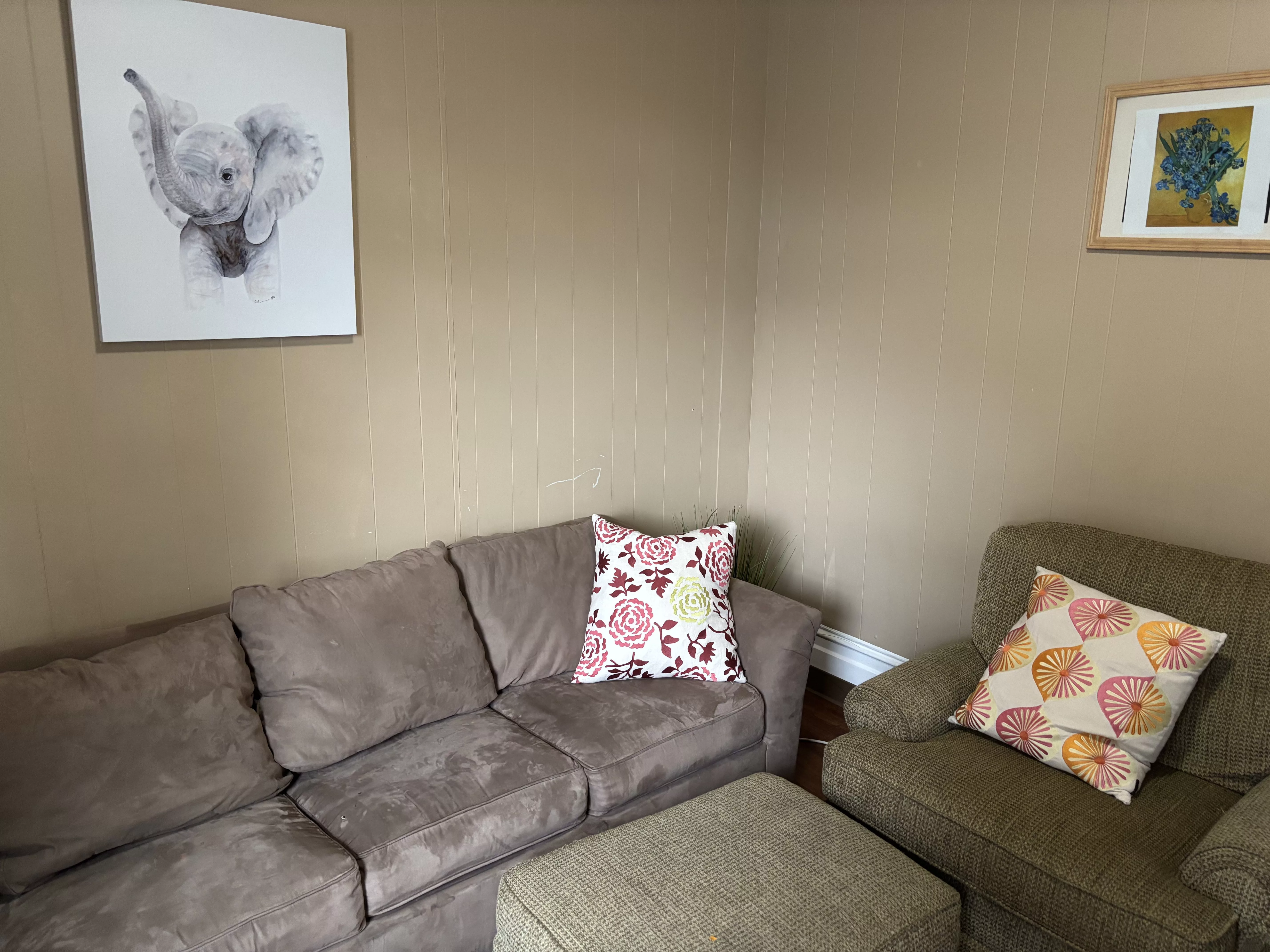
O’Connell describes the safe house as a landing pad, with the first 48 hours a down period that gives victims a chance to catch their breath and understand what they’ve gone through in a place where they can sleep without fear, be nourished and get support. “Imagine the bravery involved,” she says, pointing out that victims must leave everything behind, and they don’t know where they’re going, because the shelter’s location is confidential. “We want them to know that there’s a place for them where they don’t have to live in fear,” she says. The average stay is 60 days, but the YWCA doesn’t have a minimum requirement or a limit on how long someone can stay. Women who are pregnant sometimes give birth while they’re residents of the shelter, perhaps with difficult deliveries or C-sections, and the YWCA isn’t in a hurry for them to depart and can extend their stays.
The next step is empowering victims as they become more confident and start to take control of their own lives. YWCA advocates have a manual with substantial resources they share with their clients—the term they use when former victims are ready to move forward and start planning for the future. In addition, they help them find a way to make an income so they can become self-supporting and assist them in finding employment that will make use of the skills they possess. O’Connell recalls a case in which the client was a chiropractor, but her partner had forced her to let her license lapse because he didn’t want her to have the independence working would allow. Advocates helped her find the records she needed to renew her license and return to her profession.
Working through trauma
The YWCA started offering counseling services in 2008 and initially contracted therapists to provide on-site counseling. In 2014, it hired its own therapists as staff members and then purchased a building in downtown Santa Rosa for counseling support services in 2021. It provides short- and long-term therapy and workshops, as well as support groups in two languages, which take place several times a week. “The program that is the glue is counseling,” says O’Connell. “The remarkable support that a counselor can be to someone in trauma and distress is not to be diminished.”
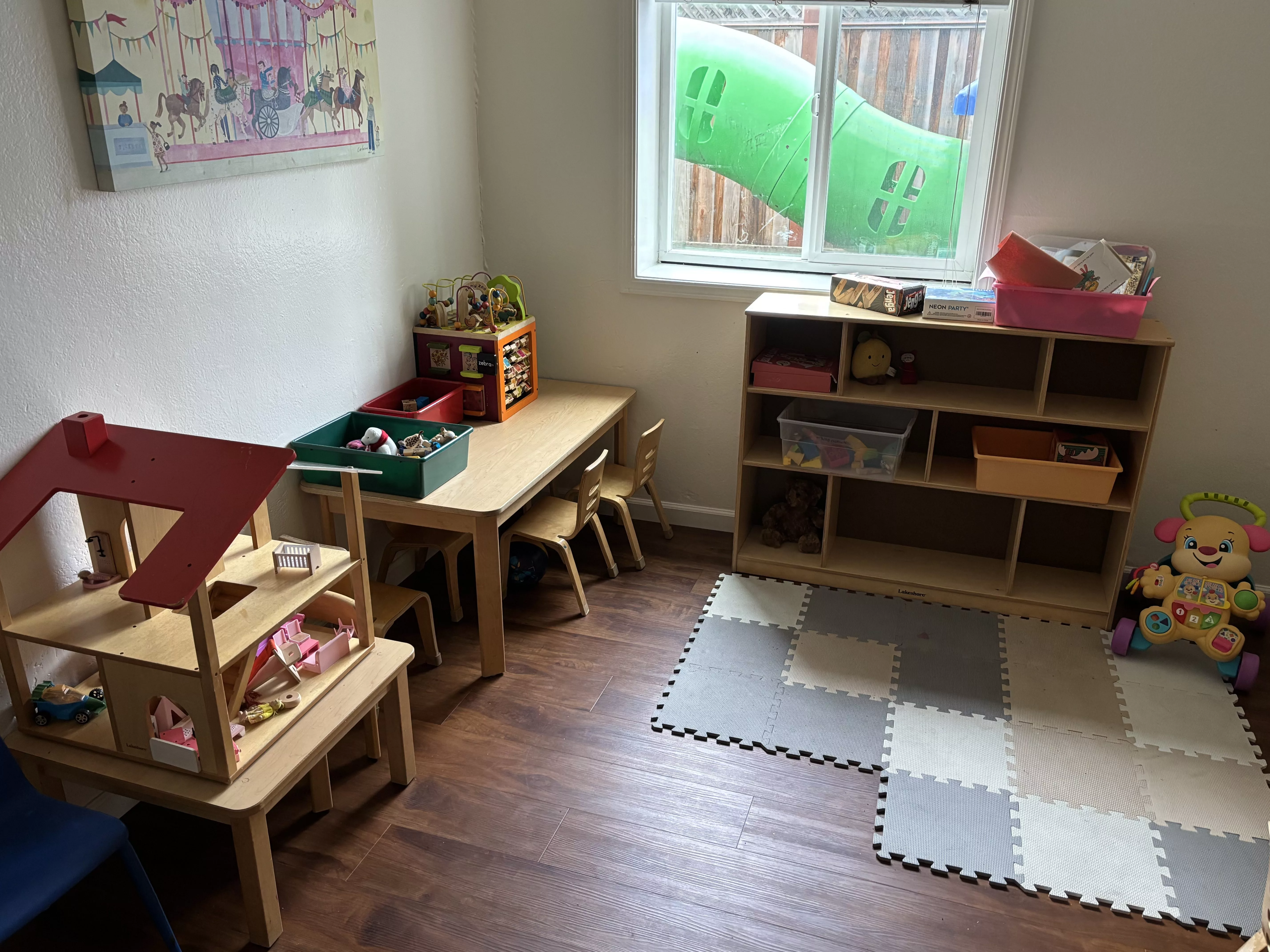
Anna (a pseudonym to protect her privacy) had a good job, a nice house and a loving husband who was a caring father to their two young children. She’d also worked with women in distress at a faith-based organization and knew the signs of abuse, so she didn’t think it could happen to her. Her husband began to use drugs, however, and he moved out of the family home to work on getting his life together. Instead of recovering, though, he relapsed and started making threats to harm his family by burning the house down or running his truck into it. “It was really scary,” Anna says, but he’d been in trouble and had a probation officer, to whom she turned for help. She told him about the threats, but he responded that she couldn’t be that scared because he was living in the house with her. He was astounded when he learned that the man had lied about residing there and had him arrested.
While he was incarcerated, his associates were looking for him; Anna felt unsafe, so she and her children, who were 2- and 3-years-old, left. “I had nowhere to go,” she says, but then she remembered she had put a card with the crisis hotline number in her wallet in case she ever met someone who needed it. Anna called, went to the safe house and stayed there with her kids for a couple of days. Her husband remained in jail for 21 days, but even before he was released he was making threats. Anna was frightened, but law enforcement was unable to do anything because he hadn’t committed a crime, and a restraining order doesn’t guarantee one’s safety. “Having a restraining order doesn’t mean they’re going to observe it. Sometimes that’s not a barrier for them,” she points out.
After her husband’s release, she spoke with him on the phone, and he said he wanted his belongings. Anna arranged to drop them off in Rohnert Park when he was supposed to be elsewhere, but he was waiting and attacked her and the kids. They fled in her car, but he followed them and assaulted them again, this time in a public place with lots of witnesses, and he was arrested. “It was a nightmare,” Anna says. “A man I trusted tried to kill me and my children. I had a restraining order and that didn’t stop him from attacking us.”
She couldn’t go home, because she didn’t know who would show up at her door to retaliate. “We felt so unsafe in our own beds and our own home,” she says, and “I couldn’t take a chance with my children.” The YWCA took them in and gave them a room, but the trauma continued, and she tried to comfort her children who were crying and had nightmares and participated in support groups with other victims in similar situations. Her husband eventually was sentenced to prison at Pelican Bay, where he died at the hands of another inmate. Anna describes crying for five years and not sleeping well for 10. Even now, she still wakes up at night, even though it’s been 20 years since the ordeal. “As a mom, I wondered what I could have done,” Anna says, revisiting the helplessness she felt as her children’s father tried to run them down. The YWCA provided counseling for her and her children, but the healing process takes a lot of time, and the trauma never entirely goes way. Counseling, however, is important for one to make the shift from victim to survivor. “The support of people who understand and have empathy makes a difference,” Anna says. “Healing has to happen somewhere, and having someone who opens the door and invites you in, perhaps with a hug, is one step.”
O’Connell adds that it would also be helpful if people changed their perception and were more understanding. “It’s time we stopped blaming and shaming victims,” she says, advising that they stop asking why a victim didn’t ask for help sooner. “It’s all about the victim, when it should be about the abuser. Why did the abuser do what they did?” she asks.
Starting young
Domestic abuse has a profound impact on children—seeing someone they love inflict suffering and pain on another is a confusing and traumatic experience. O’Connell explains that the offenders often apologize for their actions and beg for another chance, and abuse and reconciliation become an ongoing cycle. When children witness the abusive pattern of behavior, they learn that one partner can dominate another through force and violence, and they might identify themselves as either an abuser or a victim. Counseling, therefore, is crucial, because it teaches children healthy behavior and helps to break the negative cycle.
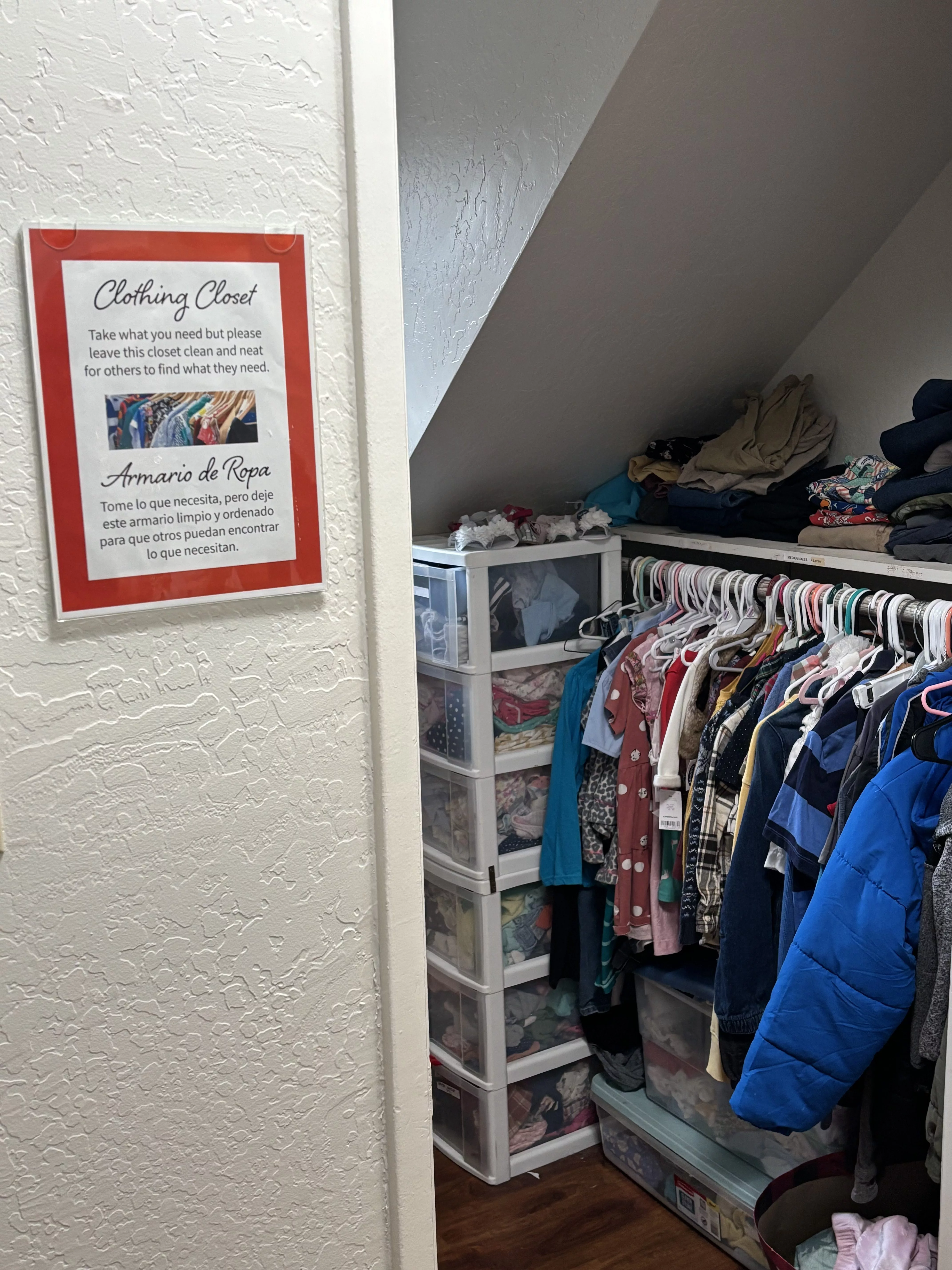
For the youngest children, Special Place Therapeutic Preschool, one of six preschools that the YWCA operates, offers on-site therapy for children 2 through 5 with counselors who are experienced in dealing with childhood trauma. O’Connell reports that one in four families is struggling with issues behind closed doors, and she recalls parents who were seeking counseling for a 4-year-old. They also had a 7-year-old, and during the interview, he described himself as the man of the house, who took care of things. Further probing revealed that the father had health issues, and the family was under financial strain, so the mother was working multiple jobs. Subsequently, the whole family got counseling so the parents could address their issues and learn parenting techniques that allowed them to take the burden off their older child.
All six preschools offer more traditional programs, as well. Enrollment is open to anyone in Sonoma County, with state-subsidized care for low-income families, as well as private-pay slots, giving families a secure place for their infant, toddler and preschool-aged children to play, learn and grow. Quality, affordable childcare is available at preschools in Forestville, Guerneville, Healdsburg, Santa Rosa, Sebastopol and Two Rock/Petaluma; the care includes meals, circle time and a low teacher-to-child ratio. The newest, for children aged 6 months through 2 years, opened in Healdsburg with a ribbon-cutting in September 2024. “We’re so proud of that location,” says O’Connell, explaining that the city chose the YWCA in a competitive process, and the facility has beautiful classrooms at a central location.
Helping hands
As a 501(c)3 nonprofit organization, the YWCA relies on financial assistance in order to offer services. People don’t pay for domestic violence services, but it’s an expensive program to run and staff. Substantial funding comes from the California Office of Emergency Services, and a grant writer looks for opportunities to apply for grants, but a funding gap still exists. “We appeal to the community for financial support,” says O’Connell, who adds that individual donors contribute because they appreciate the work the YWCA is doing in Sonoma County and want it to continue.
Volunteers also are essential to the YWCA’s operations and must commit to a 40-hour domestic violence curriculum, which is significant for members of the community.
However, says O’Connell, “Our program integrity is so important to us that we need to be sure our volunteers are comfortable and properly trained when they’re working with victims of trauma, because they have unique and special needs.”

O’Connell is grateful for all the help. “We have such an important role. It’s so vital and singular. So many charities lift up the community, but we really offer such a unique perspective to so many people who are impacted by domestic violence,” she says. And, she adds, “When you know you’re doing something that means something, you’re more dedicated to it than ever. This community needs the YWCA, and we’ll be here as long as they do.”
The National Intimate Partner and Sexual Violence Survey is viewable online at cdc.gov/nisvs/documentation/NISVSReportonIPV_2022.pdf.
‘A force for good’
Each year, the Fairmont Sonoma Mission Inn hosts the YWCA’s largest fundraiser. In May 2024, the event was titled Gather Sonoma, a Celebration of Women, Wine, Chef and Cheese; Mary Dewane, cofounder of Benovia Winery, was YWCA’s 2024 Honorary Woman in Wine, in tribute to her work on behalf of women, children and the disabled. “Victims of domestic violence are afraid and isolated, not knowing where to turn; YWCA is there with shelter, resources and vital support,” she said, when learning of the honor.
2024 Honorary Chef was Liza Hinman, in recognition of her contributions to the YWCA. “The YWCA is a force for good in our community, supporting families in crisis; I’m honored to contribute to their mission,” she said.
2025’s event is slated for Friday, May 9. To learn more, go to ywcasc.org/events-feed.—JW
Crisis Hotline
Victims of domestic violence can call the YWCA’s crisis hotline 24 hours a day, seven days a week to get help: 707-546-1234.
To find out more about domestic violence and the services YWCA Sonoma County offers, go to ywcasc.org. Information in English and Spanish provides tools for people to recognize domestic violence and what’s healthy and what isn’t. A quick escape feature on the righthand side of the page allows victims to exit the site quickly if they need to avoid being caught by abuser.


